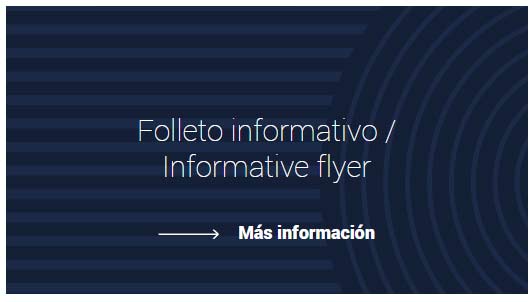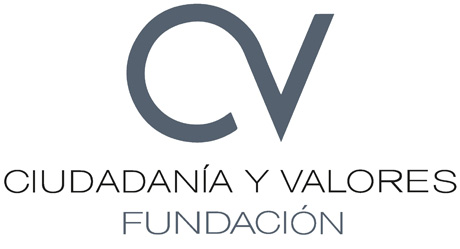Ex Pluribus Unum: Articulating Res Publica in a Complex Society An International Symposium

Modern debates about governance, citizenship, and political authority reveal two broad tendencies: On the one hand, there is a tendency toward monocentrism, that is, the belief in the ordering, protective, and liberating power of centralised institutions, most notably the State, and the view that social and cultural fragmentation and diversification pose a grave threat to order and liberty. On the other hand, there is a tendency toward polycentrism, that is, the belief in the ordering, protective, and liberating power of non-State institutions and associations, and the view that cultural and governmental centralisation and standardisation constitute the primary threat to order and liberty.
There seems to be some truth to both of these views: it is hard to conceive of a functional society without some degree of centralised coordination and governance; but is also seems undeniable that local actors are often more efficient at solving local problems, and that local units of governance can be more sensitive to local needs. This symposium aims to investigate how to strike the right balance between monocentric and polycentric visions of social and political order. We aim to explore the perennial problem of achieving unum ex pluribus – one thing out of many – in the ordering of social and political life. Specifically, the symposium poses the question, “How can we articulate an attractive and coherent ideal of civil order – a conception of the “public thing,” res publica, if you will - that combines the coordinating power of centralised governments with the legitimate prerogatives, functions, and freedoms of non-State civil society and economic associations?

Organised by
→ RESPUBLICA PROJECT: Building Res Publica in a Culturally and Morally Complex Society: A Normative Inquiry Informed by History, Law, and Social Science.
Financed by
|

|

|
Conference Program
FRIDAY, OCTOBER 20TH
| 08:30 h. |
|
Registration |
| 09:00 h. |
|
Introductory Remarks – David Thunder |
| 09:15-10:30 h. |
|
Keynote: Polycentric Status Contests – Vlad Tarko |
| 10:30-11:00 h. |
|
Coffee Break |
| 11:00-13:15 h. |
|
SESSION 1: Conceptualising a pluralist Republic
From the Public Sphere to Fragmented Publics? On the Plural Gaze of Citizens - Paolo Monti.
Two Competing Conceptions of Civic Unity: the Monocentric State vs. the Polycentric Republic – David Thunder.
Making Sense of Global and Local Common Goods – Mark Hoipkemier
|
| 13:15-15:15 h. |
|
Lunch |
| 15:15-17:30 h. |
|
Session 2: Institutionalising the Polycentric Republic
Antifragile Democracy: Disagreement, Pluralism and Stability - Pablo Paniagua
The Constitution of Liberties: Polycentrism in the Westminster Constitutional Tradition - Elliot Bulmer
|
| 17:30-18:00 h. |
|
Coffee |
| 18:00-19:00 h. |
|
Session 3: Governing the Polycentric Republic - A View From The Field
Decentralization in Buenos Aires: Real Participation or Political Manipulation? - Esteban Rocha
Claims and Contestations of Participatory Governance in a Neo-Liberal City: The Case of Ahmedabad, India - Shelly Kulshrestha
|
| 19:00 h. |
|
Conference Ends |
| 20:30 h. |
|
Dinner |
|
Speakers
Dr. Vlad Tarko
is Associate Professor and Head of the Department of Political Economy and Moral Science at University of Arizona. His work is primarily in the areas of polycentric governance, varieties of capitalism, and history of political economy. His writings include Elinor Ostrom: An Intellectual Biography (Rowman & Littlefield International, 2017), Understanding Capitalism: An Introduction to Political Economy (Polity Press / Wiley, under contract), Capitalist Alternatives: Models, Taxonomies, Scenarios (Routledge, 2015) (co-authored with Paul Dragos Aligica), Public Governance and the Classical Liberal Perspective (Oxford University Press, 2019) (co-authored with Paul Dragos Aligica and Peter Boettke), and Elinor Ostrom and the Bloomington School: Building a New Approach to Policy and the Social Sciences (Agenda Publishing / Columbia University Press, 2021) (co-edited with Jayme Lemke). His forthcoming book is Understanding Capitalism: An Introduction to Political Economy (Polity Press).
|
Dr. David Thunder
is a researcher and lecturer in political philosophy at the University of Navarra’s Institute for Culture and Society. His principal research interest is the social and institutional conditions under which people can pursue flourishing lives individually and in community. David’s academic writings include Citizenship and the Pursuit of the Worthy Life (Cambridge University Press, 2014), The Ethics of Citizenship in the 21st Century (edited volume, Springer, 2017), and numerous articles in international peer-reviewed journals. His current book project, The Polycentric Republic: A Theory of Civil Order for Free and Diverse Societies, advocates replacing the principle of State sovereignty adapted from monarchical absolutism with a more pluralistic and decentralized conception of civil order, sensitive to the governmental role of non-State organisations in many different spheres of life.
|
Dr. Mark Hoipkemier
is assistant professor of politics, philosophy and economics at the University of Navarra. (Ph.D., Notre Dame - 2017). His research is primarily concerned to clarify the concept of common goods and apply it to contemporary challenges. He recently finished a book manuscript, entitled Beyond Price: The Market, the Corporation, and the Common Good, which applies Aristotelian pluralism to our two dominant economic institutions. Though we normally think of markets and firms only as vehicles of private interest, in fact they involve us all also in morally-formative shared projects oriented to common ends, which we ignore only at the price of injustice. Mark’s next big project, of which this essay is a part, is to give a fuller account of the Aristotelian pluralism as a theory of the common good. This research will draw on Aristotle and his modern readers, including Charles Taylor, Yves Simon, and Alasdair Macintyre.
|
Dr. W. Elliot Bulmer
is a Senior Programme Officer (Constitution Building) at the International Institute for Democracy and Electoral Assistance, where he has had practical engagement in constitutional change processes around the world, including Sudan, Afghanistan, Myanmar, Ukraine, Georgia, Egypt, Sri Lanka and Tuvalu. He was previously a Lecturer in Politics at the University of Dundee and an officer in the Royal Navy. He specialises in the comparative study of constitutions and the politics of constitutional change, with a focus on Westminster Model and Commonwealth democracies. His books include Constituting Scotland: The Scottish National Movement and the Westminster Model (Edinburgh University Press, 2016) and Westminster and the World: Commonwealth and Comparative Insights for Constitutional Reform (Bristol University Press, 2020).
|
Dr. Paolo Monti
is Assistant Professor of Moral Philosophy at the “Riccardo Massa” Department of Humanities for Education of Università degli Studi di Milano Bicocca and Adjunct Professor of Ethics at Università Cattolica del Sacro Cuore. His research focuses on the ethics of citizenship in technological societies, the role of cultural and religious pluralism in the public sphere and the moral responsibilities of educators and social workers. He has been Associate Researcher at Université du Luxembourg and Visiting Researcher at the University of Notre Dame (USA) and at the National Institutes of Health (USA). In 2018 he published the book Contemporary Political Philosophy and Religion: Between Public Reason and Pluralism (London and New York: Routledge, 2018 – with C. Ungureanu).
|
Mr. Esteban Rocha
is currently a PhD student in Real Estate and Planning at Henley Business School, University of Reading, and a research assistant working on a research project on organisational behaviour. He pursued an undergraduate degree in Liberal Arts at Thomas Aquinas College, USA, and a Master’s degree in philosophy at the University of Navarra. Esteban’s research focuses on civil society participation in local governments, and he is currently working on a case study that evaluates key participatory institutions within Buenos Aires city. His research interests are institutional theory, field theory (Niel Fligstein) and governance theory.
|
Ms Shelly Kulshrestha
has over 20 years of experience in research, consultancy and teaching in multi-dimensional areas related to participatory governance and urban management. She is a managing trustee of The Urban Lab Foundation, which is incorporated as an NGO, with a mission to work towards making cities safe and livable. She has an interest to work towards strengthening of municipal services for the urban poor through participatory processes. She is a visiting professor at the Faculty of Management, CEPT University, Ahmedabad, where she facilitates skill and knowledge development for students to get trained as urban management professionals. She has designed and facilitated online courses on disaster risk management for the World Bank Institute (WBI). She has published paper on Commuter's Exposure to PM2.5. She has done post-graduation in planning and is currently pursuing PhD from CEPT University in the area of participatory governance.
|
Dr. Pablo Paniagua
is an economist and a Research Fellow at the Centre for the Study of Governance and Society at King’s College, London. He is also a Senior Researcher at Fundación Para el Progreso and an Affiliated Scholar at the Ostrom Workshop at Indiana University Bloomington. He received his M.Sc. in Economics and Finance from Milan Polytechnic and his Ph.D. in Political Economy from the University of London. His research focuses on governance and institutional analysis. He has authored over 20 articles, essays, and books dealing with various aspects of the political economy of money and banking and the governance of social dilemmas. His work has appeared in peer-reviewed journals including Journal of Institutional Economics, Journal of Evolutionary Economics, and Economy and Society. His most recent book, Atrofia: Nuestra encrucijada y el desafío de la modernización, was published by RIL Editores in 2021.
|
PLEASE NOTE: This symposium is co-hosted by the III International Congress on City and Philosophy: New Citizenships for a Collapsing Globalization, also held on the University of Navarra’s campus (18-20 October 2023). Symposium participants are warmly invited to attend both conferences.



